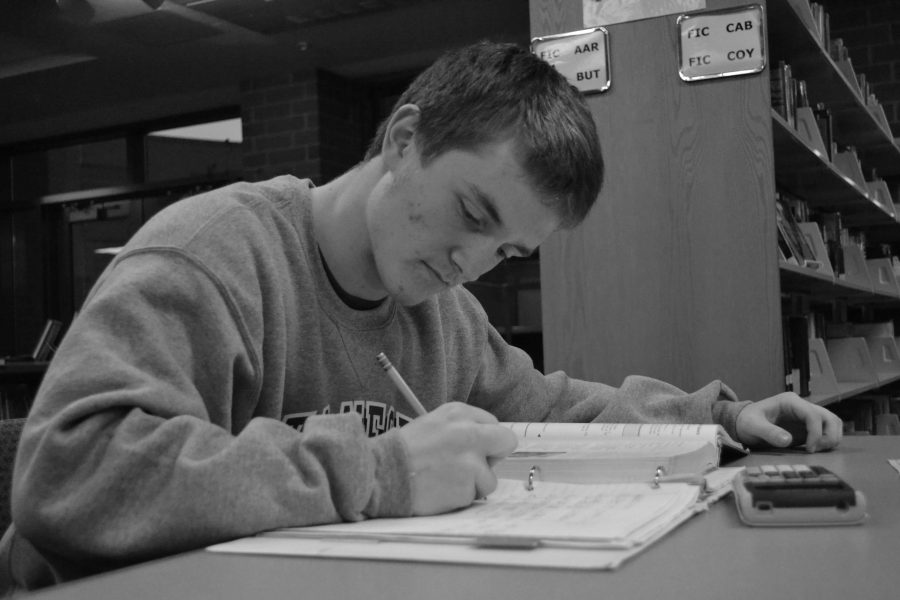Junior Tyler Vasconez sits in his calculus class. Teacher Stephen Styers finishes his lecture and with a fear-evoking smile, reminds the class of tomorrow’s test. After school, Vasconez goes to football workouts. When he finishes, he walks out to the parking lot and remembers the painful fact: I have to study for my calculus test. He walks into his house with his backpack in one hand and his football gear in the other. Still dripping with sweat, he throws his football stuff aside and pulls out his calculus book. It’s crunch time.
Vasconez is one of the ever-exalted students who can handle himself in both the gym and the classroom. Unfortunately, though students like Vasconez are growing in number, the misleading idea remains: athletes don’t care about academics. Like a cancer, this idea is spreading and its effects can only be detrimental.
Huntley High School does a fantastic job promoting the combination of athletics and academics in this world that is separating the two more than ever.
“Academics come first,” said athletic director Michelle Jakubowski. “We hold our student-athletes to a high standard.”
Huntley coaches do all they can to help their athletes perform well academically. The football coaches have set up a program called “study tables” where players can spend time working on schoolwork. Several coaches allow their players to miss the beginning of practice if they need to go to Raider Aid. Our coaches are helping student-athletes become STUDENT-athletes.
“Our coaches are very helpful,” said Jakubowski. “Our athletes can go get help if they need to.”
Huntley has also increased the credit requirements for weekly and semester eligibility checks by a half-credit, now requiring students to be passing two and a half credits. This lets athletes to perform poorly in a couple classes, but it is much stricter than other schools.
Although Huntley has taken action to promote the academic pursuits of student-athletes, people still associate athletes with poor academic performance. This shouldn’t really come as a surprise. Our society idolizes absolute commitment to sports and even patronizes those athletes who avoid school as much as possible. Some of the most prestigious college football programs give their players special classes to help them maintain their athletic eligibility.
The most harmful effect of this misleading idea is the change in children’s thoughts. Kids naturally have a desire to grow up excelling at sports. Their all-too-common career aspirations are to play professional baseball or football. When they see athletes portrayed as snuffing school, they will want to do the same. Kids are impressionable, especially when it comes to something as glorified as sports.
We should highlight athletes that excel academically as well as athletically. Notre Dame, the number one football team in the country, also has the highest graduation rate. SEC powerhouses LSU, Alabama, and Florida are all ranked in the top ten and all have graduation rates of at least 80 percent. We should be patronizing athletes like Mark Derosa, who went to the University of Pennsylvania.
America is falling behind other countries enough; we don’t need to accelerate this trend by associating intelligence with a lack of athleticism. Being able to bench more than other countries doesn’t put us in a better position. I like to call this idea the “Dude, Do You Even Lift?” mentality.
As Red Raiders, we can be proud that our school has established a system that combines the best of the athletic world with the best of the academic world. Hopefully, other schools will do the same. If not, Huntley students like Vasconez, who pull out the calculus book, will have the upper hand lead our country.

